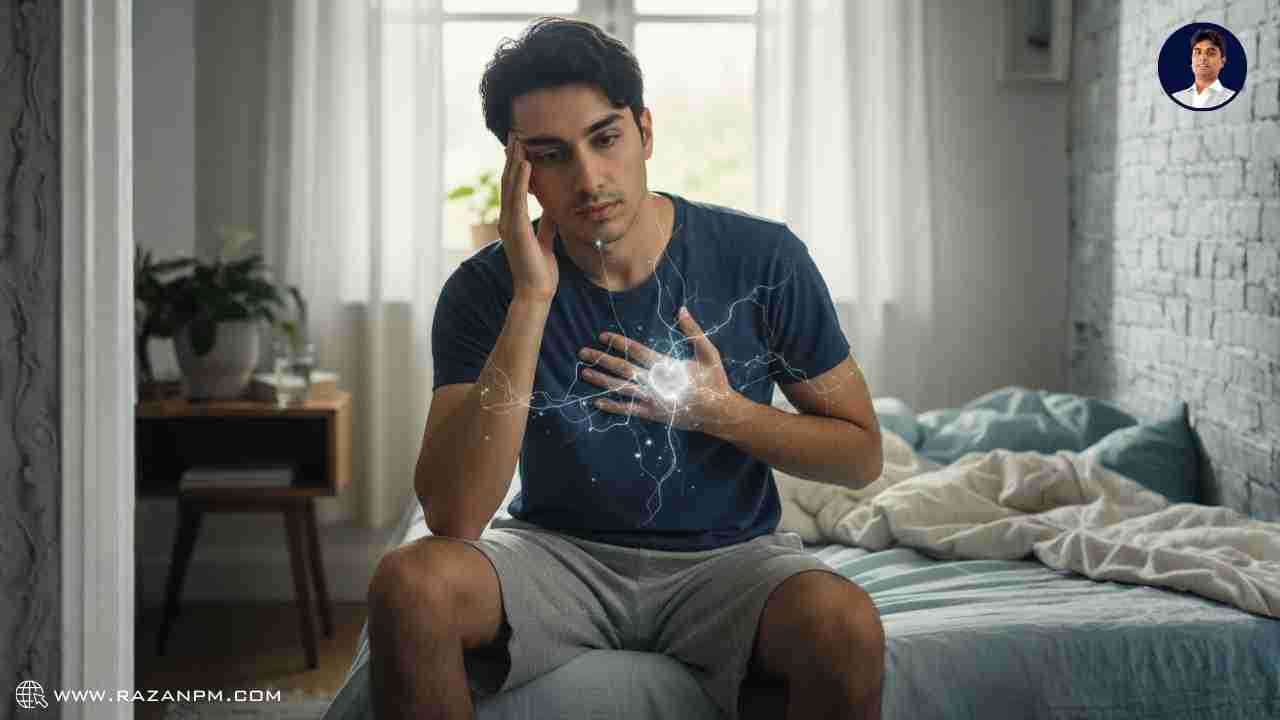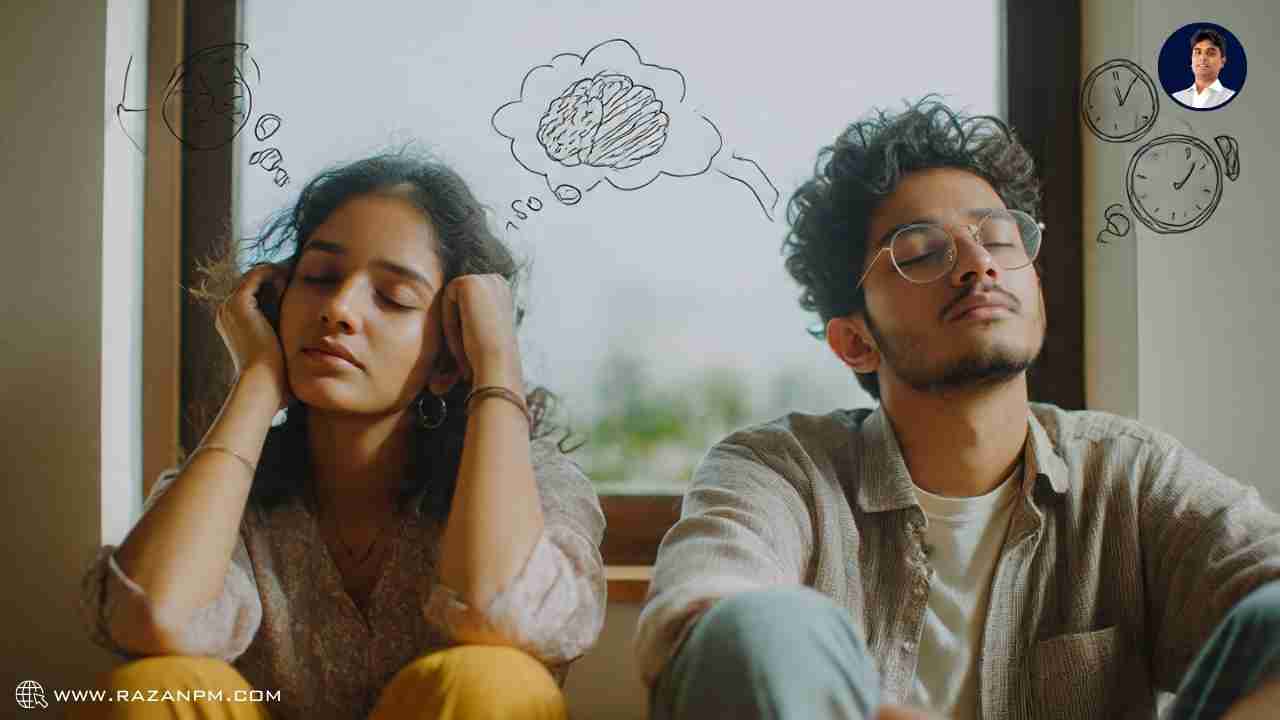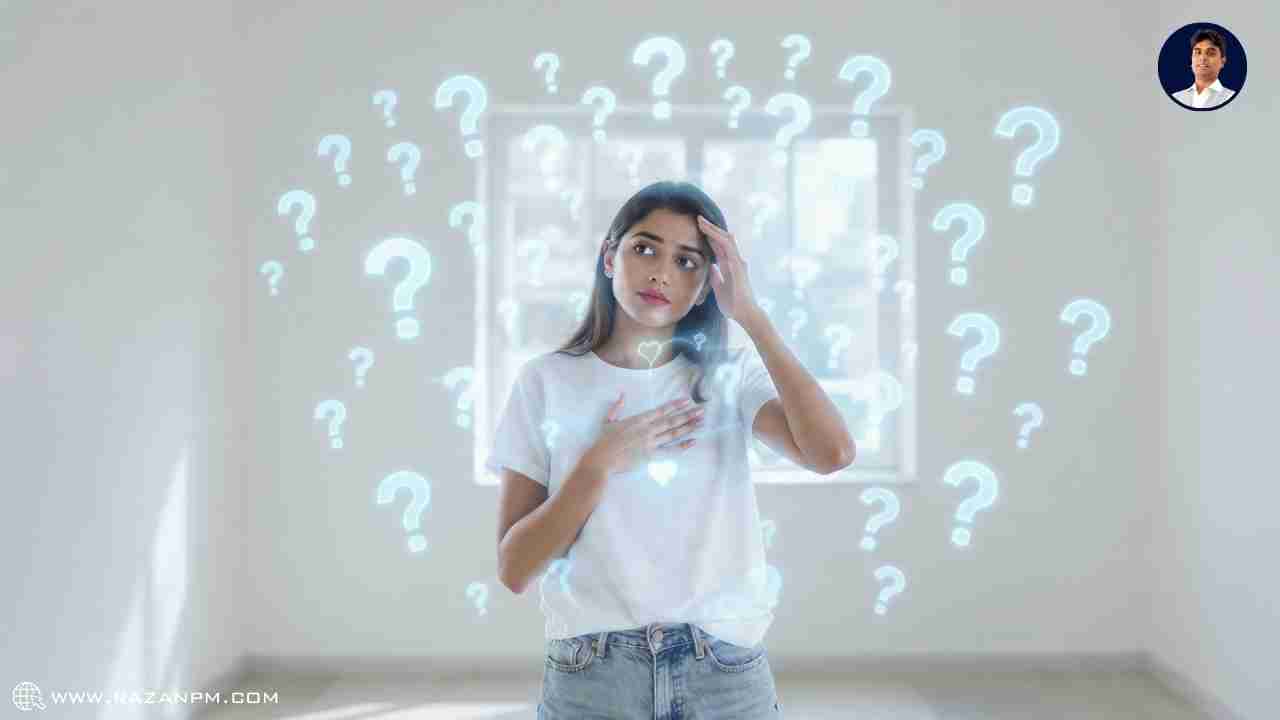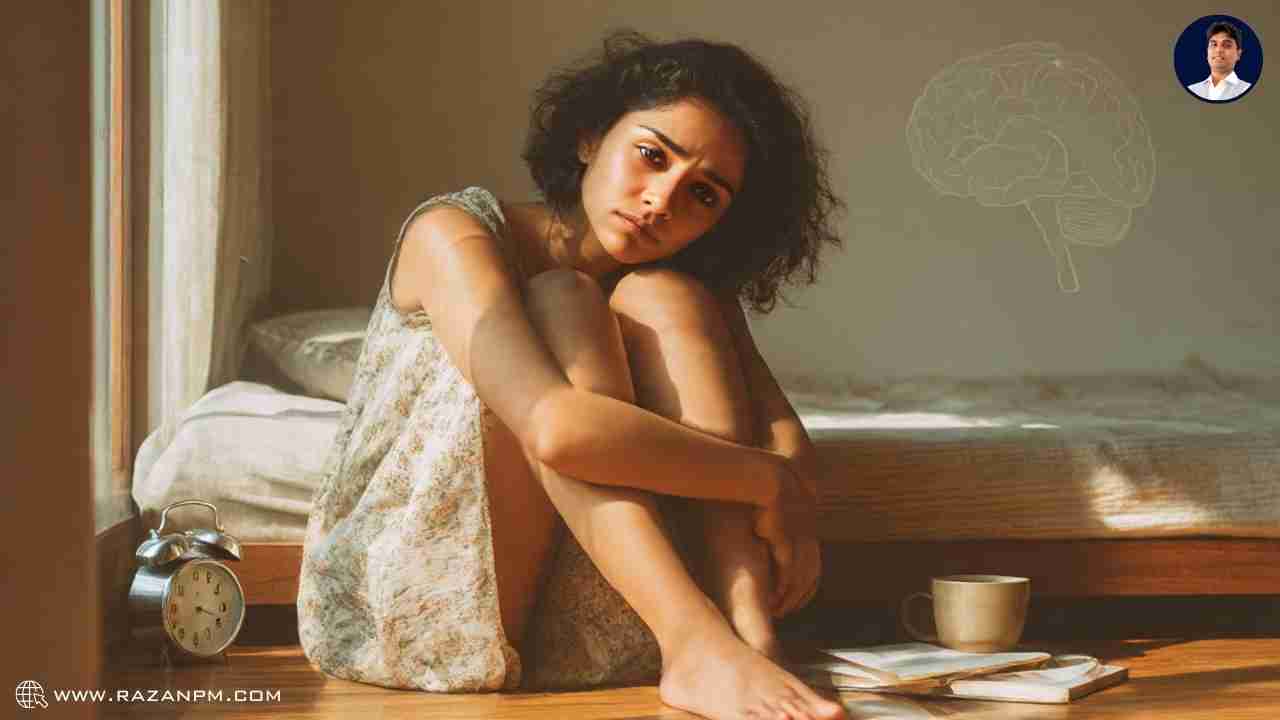Picture this: you toss and turn at night, one little thought pops up — “Did I mess up that meeting today?” — then two more: “What if I can’t keep up tomorrow?”, “Maybe I’ll never sleep well again.” And suddenly you’re staring at the ceiling at 3:17 a.m., heart racing, mind spinning, feeling like a hamster on a wheel that never stops. Aaj raat bhi wahi scene? You’re not alone. Because what starts as a small sleep glitch can quietly spiral into something far heavier — like your mood collapsing, hope dimming, and that familiar cloud of depression sneaking in.
Yes, I’m talking about how a seemingly simple sleep disorder such as insomnia can be the silent engine fuelling something much deeper: depression. And let me tell you, as a clinical psychologist and mind healer, I’ve seen this more times than I’d like to count.
also read: what to do when i love you gets noreply

Let’s be honest: when someone says “I’m not sleeping,” most of us shrug and say, “Chalo, so jao early tomorrow.” But your brain isn’t in on the joke. Insomnia doesn’t just steal your Z’s — it steals your sense of safety. You might think: “Aaj mat soya, kal thik honga”— but then you don’t. Kal becomes the next day, and the worry grows. You might feel:
Tumhara mind silently says: “I’m not okay,” but you might push it aside, because after all, just one bad night of sleep — kuch toh nahi hoga na? But unfortunately, bada hoga.
also read: how fear of rejection kills realconnection

Let’s break down what insomnia and early depressive symptoms look like — so you can spot them in yourself, ya kisi apne mein.
So when you’re lying awake, mind crawling, then dragging through the day feeling worthless or just meh, you might be seeing the interplay of insomnia and depression.
also read: why timing turns simple talks intobig arguments
Very important part — jo hum professionals use to understand and label these disorders.
The DSM-5 defines “Insomnia Disorder” as: dissatisfaction with sleep quantity or quality plus one (or more) of these: difficulty initiating sleep, difficulty maintaining sleep (frequent awakenings), early-morning awakening with inability to return to sleep.
From DSM-5: to diagnose MDD, a person must have five (or more) of the specified symptoms during the same 2-week period and represent a change from previous functioning; at least one is either depressed mood or loss of interest/pleasure. Among the symptoms: insomnia or hypersomnia nearly every day.
Sleep disturbance (insomnia/hypersomnia) is therefore a symptom of depression — but here’s the key: insomnia can also come before depression, even trigger it.
In simpler terms: insomnia isn’t just “part of depression” — in many cases, it leads into the depressive episode.
also read: how everyday pressure breaks yourmind?

Now, let’s anchor this in real research so you know this isn’t just my “mind healer” talking.
In short:
“Insomnia isn’t just a red flag during depression—it’s a potential green light before depression...”
So here’s the scary bit: if you ignore chronic insomnia, it might not just affect your nights — it could affect your mood, your brain chemistry, your life direction.
also read: do voice notes kill realconversations?
Let me share a story: I’ll call her Anjali. She came to me, sleep-deprived, tearful, saying: “Doctor, I haven’t slept more than two-three hours a night for the past six weeks… And now I’m feeling like I can’t smile even when I watch my favourite old Bollywood song.” Uska mind almost whispered: “What if I’m becoming depressed?”
We talked. We traced it back to a minor work conflict, then to that “just one late night”, then to “just one more” night, and then she began screwing up during the day — missing trains, blanking in meetings, then feeling ashamed. Her sleep became a fear: “If I go to bed and fail to sleep, maybe tomorrow I will fail at life.”
We worked together: I helped her see that her insomnia was not trivial. It was the doorway through which the depression had started to sneak in. And once we treated the sleep, the mood improved. Once her nights changed, her days began to lighten. Us journey ne mujhe sikhaya — the solution often begins with the night.
also read: how bias turns into deep depression?

Here’s a practical, mini-tip you can implement tonight. It won’t solve everything, but it’s something you can try and build from.
Why this helps: By reducing screen-stimulus, calming the nervous system, acknowledging little positives, you give your brain the cue: “It’s safe to sleep.” Over time, this ritual helps weaken the fear-loop around insomnia.
Try it for a week and see if you feel even slightly better at bed-time. That slight difference could be the first whisper of change.
also read: how to tell if emotional separationhas already started?
Of course, the mini-tip above is just the first move on a larger dance. Because when insomnia and depression are linked, the solution might involve deeper work: cognitive-behavioural therapy for insomnia (CBT-I), mood regulation skills, rewiring sleep cycles, addressing deeper fears, sometimes collaborating with a psychiatrist or sleep specialist. This blog can only give you the map — not the full guided journey. If you want to truly break free from the sleep-to-mood spiral, you may need tailored guidance.
also read: why kind words create misunderstanding?
If this feels familiar — that restless night, the heavy day, the creeping fear — you don’t have to figure it out alone. I’m here as a clinical psychologist & mind healer to walk this path with you, step by step. Book your 1-on-1 consultation here and let’s bring back your nights of rest and days of peace.
👉 Begin Your Journey with a 1 on 1 Consultation
👉 Begin Your Journey with a 1 on 1 Consultation

Insomnia affects the brain’s emotional control centre — especially the amygdala and prefrontal cortex — leading to mood imbalance. When sleep loss continues, serotonin and dopamine levels drop, triggering sadness, irritability, and finally clinical depression.
also read: how caregiving triggers hidden depression?
Common early signs include:
If these symptoms last longer than 2–3 weeks, consult a clinical psychologist or sleep expert.
also read: how fibromyalgia fuels hiddendepression?
Yes ✅ Research shows that when insomnia is treated (using CBT-I, relaxation therapy, or routine change), depressive symptoms often reduce by up to 50 percent. Improving sleep improves emotional balance and thought clarity — a proven link in both DSM-5 and ICD-10 guidelines.
also read: why saying i love you is not enough?
The gold-standard treatment is Cognitive Behavioral Therapy for Insomnia (CBT-I) combined with Cognitive Therapy for Depression. It helps retrain your brain’s sleep habits and negative thought loops. In severe cases, mild medication may be prescribed by a psychiatrist under supervision.
also read: why emotional intimacy feels unsafefor some partners?
Try this nightly “mini-ritual”:
These habits train the mind to feel safe and calm at night.
also read: how hormonal shifts can triggerdepression?
Good question 👀 — It’s actually both. According to DSM-5, Insomnia Disorder is a standalone diagnosis when it persists > 3 months and causes distress. But it’s also a common symptom of depression, anxiety, and stress-related disorders.
also read: how chronic pain fuels depression atany age?
If you’ve had poor sleep for over 3 weeks, feel emotionally unstable, or experience constant fatigue and irritability, it’s time to consult a clinical psychologist or mind healer. Early help prevents the insomnia-depression loop from deepening.
also read: when silence turns intomisunderstanding?
Sometimes yes, sometimes no. Mild cases improve with sleep hygiene, mindfulness, exercise, and caffeine control. But chronic insomnia or depressive episodes usually need guided psychological support to reset neural patterns and restore healthy sleep-mood balance.
